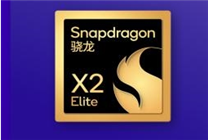Japan’s 2nm Chip Production Breakthrough: Major Partnerships with AMD and Intel-Related Firms
Summary:
- Introduction of Rapidus: Japan’s Rapidus Company is emerging as a competitor in the chip manufacturing sector, with plans for 2nm process mass production by 2027.
- Strategic Partnerships: The company has identified two major U.S. clients—IBM and Tenstorrent—for their upcoming trial production in 2024.
- Technological Advances: Recent developments in 2nm wafer technology show promising transistor densities, positioning Rapidus favorably among global chip manufacturers.
Japan’s Rapidus Company is positioning itself as a significant player in the semiconductor landscape, aiming to reinstate the nation’s status among advanced technological powers. Established in 2022 through a collaboration of eight industrial giants, including Toyota and Renesas, Rapidus is focused on pioneering the 2nm fabrication process, with ambitions to achieve mass production by 2027. Supported by an impressive financial backing of 1.7 trillion yen (approximately 12 billion USD), the company seeks to advance Japan’s chip manufacturing capabilities and regain competitive ground against industry leaders like Intel, TSMC, and Samsung.
Technological Progress and Goals
Rapidus has made significant strides in the development of its 2nm process. Notably, the company recently showcased a 2nm wafer with a logic density of 237.31 million transistors per square millimeter (MTr/mm²), outpacing TSMC’s N2 process and edging ahead of Intel’s 18A technology. This development positions Rapidus as a formidable newcomer in a highly competitive market where technological superiority is crucial.
However, beyond technological prowess, securing a robust customer base is critical for Rapidus’s success. CEO Atsuyoshi Koike acknowledged in July 2023 that the company has been actively engaging with 30 to 40 potential customers. Despite the enthusiasm, he recognized that not every interaction will lead to a successful partnership.
Major Customer Partnerships
In a significant breakthrough, Rapidus has identified two major U.S. companies as primary customers for trial production set to commence in 2024. These companies are IBM and Tenstorrent.
IBM’s involvement is particularly noteworthy since the foundational technology for Rapidus’s 2nm process is derived from IBM’s research and expertise. This partnership ensures a strategic collaboration for chip R&D and trial production efforts. On the other hand, Tenstorrent presents a less conventional partnership. Originally an AI chip startup, Tenstorrent is now headed by the accomplished Jim Keller, a well-respected figure in the semiconductor industry.
The Legacy of Jim Keller
Jim Keller is renowned as a pivotal force in CPU architecture. His extensive portfolio includes significant roles at major tech companies like DEC, AMD, Intel, and Tesla. His reputation as the "Silicon Immortal" stems from his ability to revitalize and innovate processor designs during his tenure at AMD, leading to the highly successful Zen microarchitecture. Keller’s expertise in semiconductor technology and his recent focus on creating AI chips based on RISC-V architecture could synergize well with Rapidus’s ambitions.
The Road Ahead
As Rapidus initiates its trial production phase, the company stands at a crossroads that could define its trajectory in the semiconductor industry. The forthcoming collaboration with IBM and Tenstorrent not only signifies commercial validation but also opens avenues for technological exchanges that may enhance its capabilities.
The chip manufacturing industry is rapidly evolving, with firms globally racing to innovate and secure their market positions. Japan, with its deep industrial roots and commitment to technological development, is making a concerted effort to regain its foothold through Rapidus. The success of Rapidus will depend heavily on continuous innovation and effectively addressing customer needs in this dynamic landscape.
In conclusion, Japan’s measures for reviving its semiconductor industry through Rapidus and its strategic partnerships with major tech companies are critical steps toward strengthening its position in global technology leadership. The introduction of advanced tech like the 2nm process could pave the way for beneficial collaborations and a thriving domestic chip production ecosystem.









